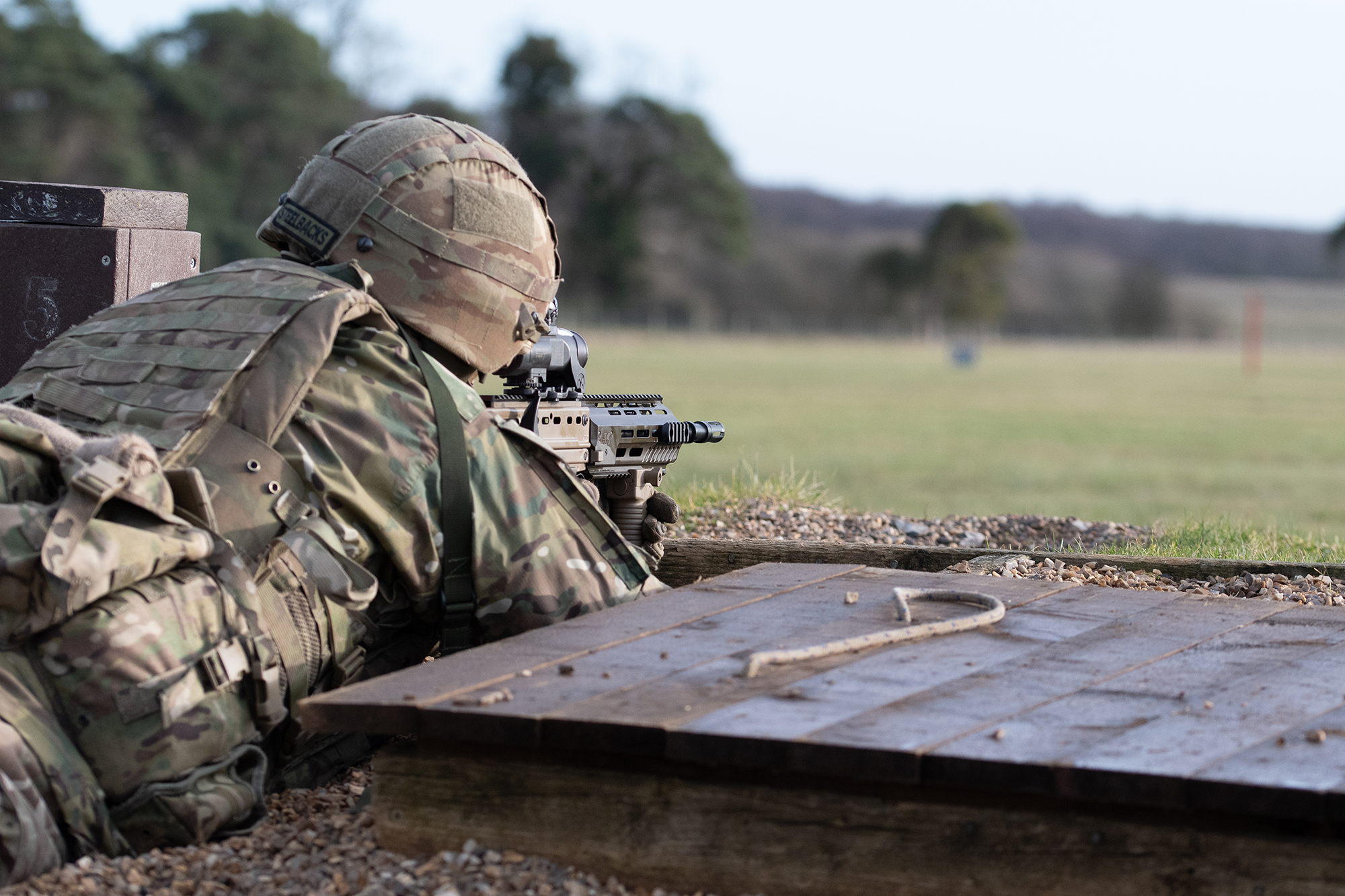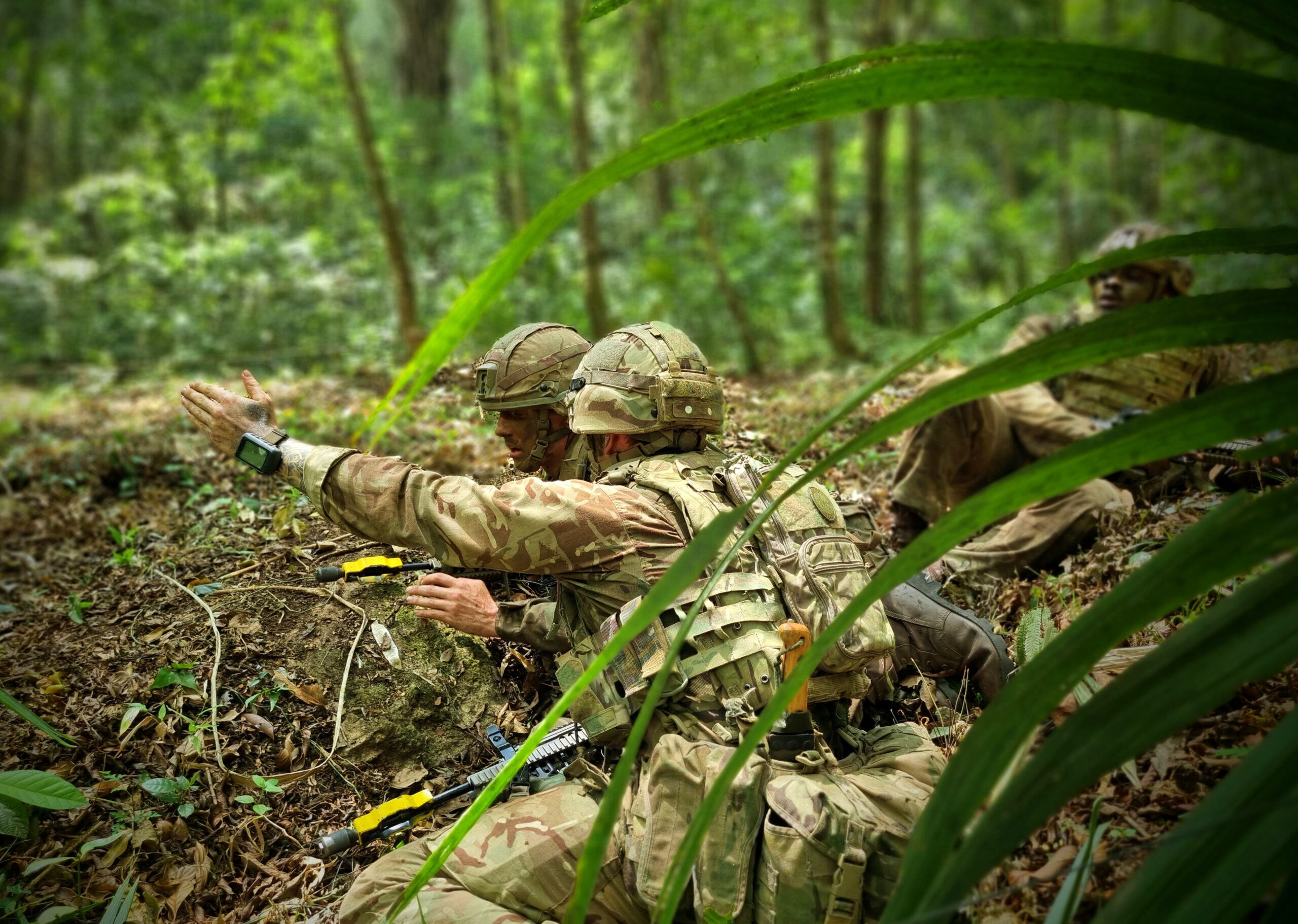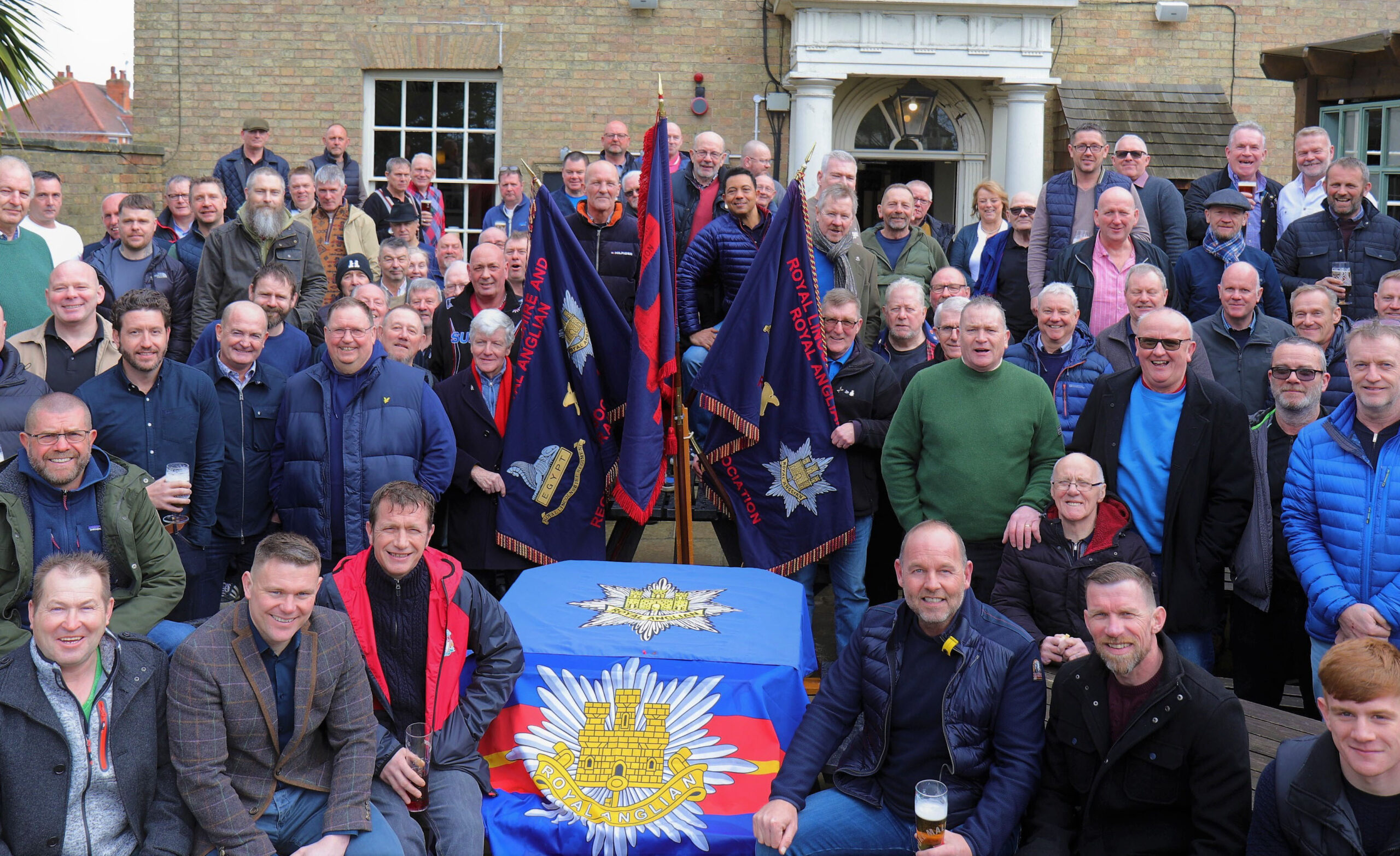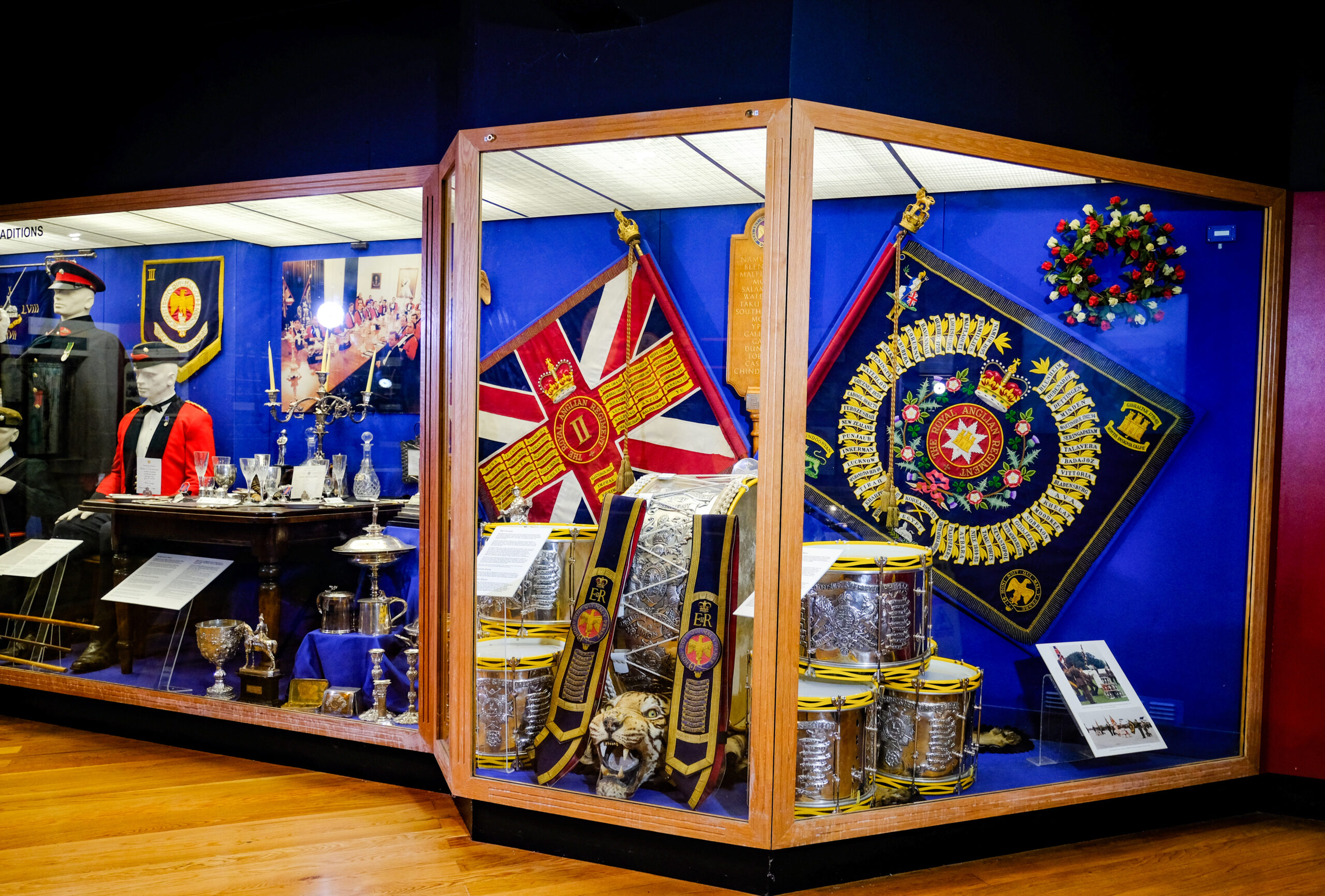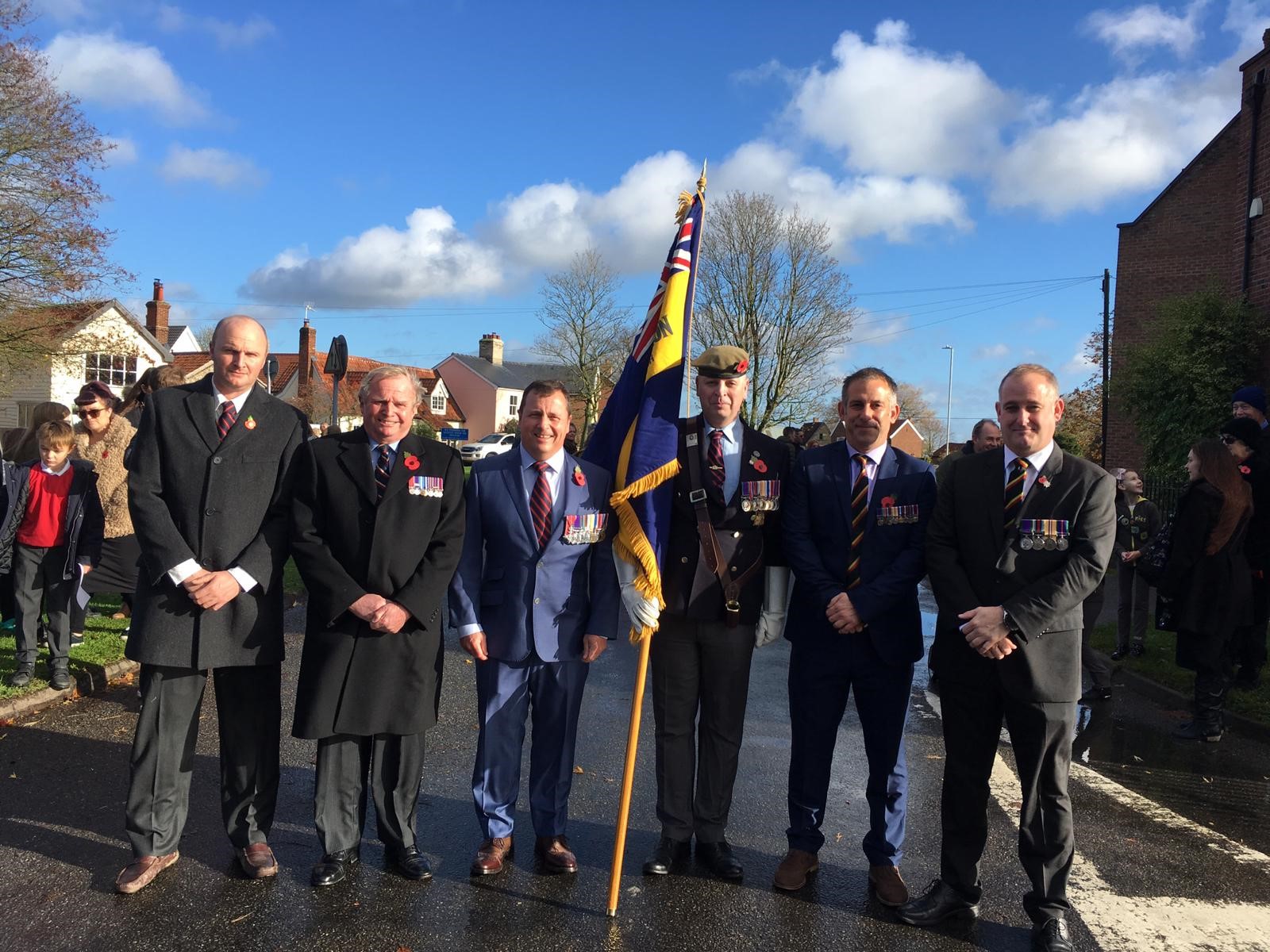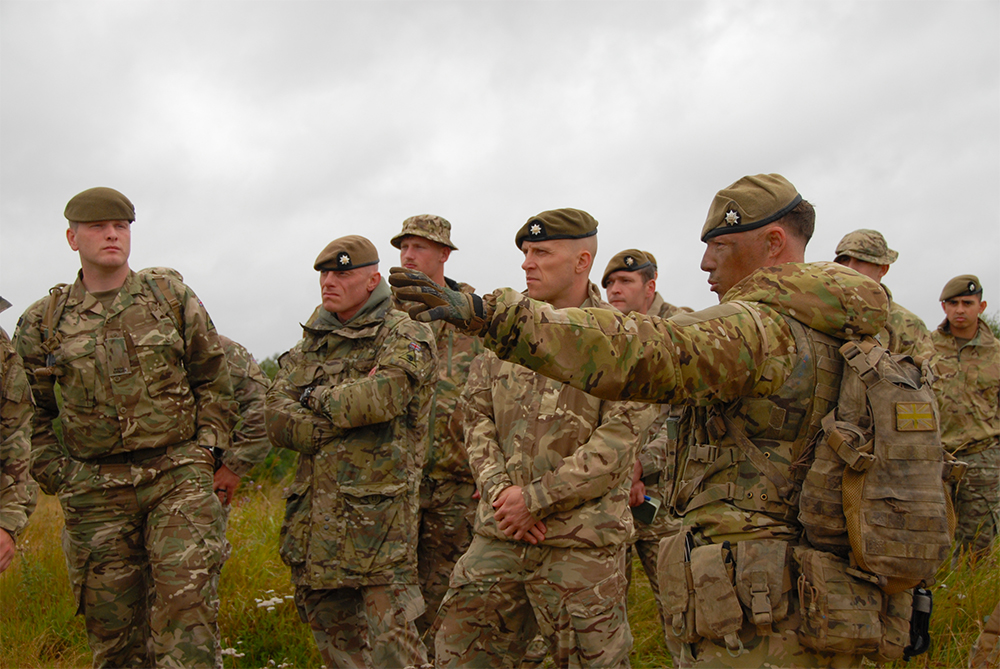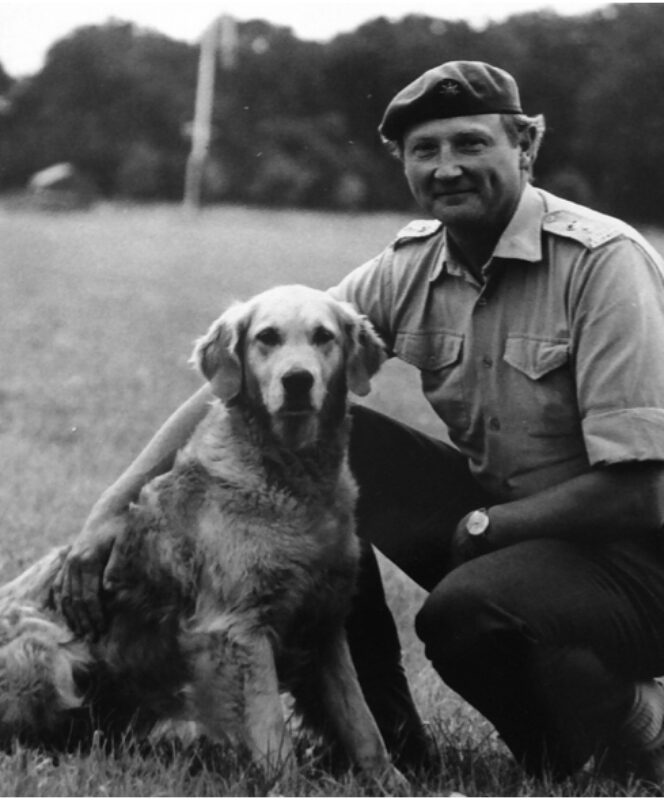
Obituary for Colonel Paul Long OBE DL
How do you describe someone like Paul in only a few words? It is truly impossible. His many qualities and traits shone through the tsunami of words written by so many to Sue, following his tragic and unexpected death.
Paul was born in Nainital, a hill station in India on 27th April 1942. His father had been in the RFC during the First World War and was still a military man, but Paul was sent to the well-known Taverham Hall Prep School just outside Norwich and thereafter to Wellington College, which in the late 50’s had a track record of pupils making the Army their career destination: although for some strange reason he was in the Naval Section of the CCF! Thus, in 1961, he went to Sandhurst where he excelled, being appointed Senior Under Officer of his company in his senior term and completing the Edward Bear parachute course in his last term.
Paul joined the Battalion in Felixstowe in January 1963. As one of the first East Anglian badged Officers, he entered the Ante-room to find the ex-Royal Norfolk Officers at one end and the ex-Suffolk Regiment at the other, apparently to see where his loyalties lay. He was with Rupert Conder and they decided to remain chatting to each in “no-man’s land” until, after a few minutes, Officers from each end approached and they felt that they had established themselves as committed to both counties as “East Anglians”. He started his professional life well by winning the annual Platoon battle test competition.
In early 1964 Paul deployed with the battalion to Aden, where he was wounded in the Radfan. He was commanding 6 Platoon taking part in a diversionary attack. As they moved forward they encountered a small roadblock of rocks and small trees. On moving forward to clear the obstruction, they came under heavy and accurate sniper fire. Paul was hit by a bullet in the buttock. He was evacuated to the Hospital in Aden where, by all accounts, basking in the brief light of being a war-hero. He was not shy in exhibiting his wound to impressionable young Nurses! Some compensation perhaps – as the rest of the battalion, as Soldiers are wont to do, chuckled unsympathetically about where he had been hit. He was then dispatched to Kenya to recuperate in the loving care of the late General Sir Ian Freeland.
An entry in the EDP of 5th May 1964 read “Second Lieutenant Paul Long, wounded in a clash with tribesmen in the Radfan area, is in Hospital in Aden. Mrs Long, whose Husband Lt Col P J Long is away on holiday, is expecting to hear from her son in the next two days. She was glad that the wound was only superficial and thought her son must have been crawling along the ground when he sustained it. “The wound is in a rather undignified position” she added. Aren’t Mothers wonderful?
Another memory from the Radfan was Paul coming on the radio one day and saying that he had found a mine. The Army had left Mark 5 and 7 mines behind at Suez and the Arabs now had access to these. Paul was told to stay in situ and that the Engineers would come and defuse it. Paul replied “Not to worry, I’ve done this already”. Brave and knowledgeable, but it also earned him a ticking off. Nonetheless, for his time in Aden, Paul was awarded a Mention in Despatches for his gallantry.
And it was in May of 1967 that Paul married Kerry at Chelsea Old Church with their eldest, Torquil, being born in November 1968 once the Battalion had moved to Catterick.
Paul subsequently became the Adjutant of the Bermuda Regiment for two and a half years. Whilst this was a very happy time for the family during which Suzannah was born, it was a time of racial disturbances, which affected the Regiment, as it comprised both black and white members. Paul, as one of the few regular Officers in a volunteer Battalion, was applauded by both his CO and the Governor, for the way in which he helped bring the Regiment through a difficult time.
On return from Bermuda, Paul became a Company Commander back with the Battalion, first in Cyprus, where Rory was born, then Tidworth and Northern Ireland. Throughout this time the Long household was a warm and welcoming place, which was particularly supportive to all newcomers to the Battalion. Paul’s open and straightforward professionalism and consistency was widely respected by all ranks – in particular he earned the absolute trust of his Soldiers.
In1976 Paul went to Staff College. One of his Directing Staff described Paul. “I had Paul Long for Term 1 only in 1976 but did stand in as a DS during Basic Tactics briefly with Paul again. Unlike many of the real thrusters who tended to march at 180/min, all my R Anglian students were polite and courteous throughout. Paul was almost shy but what he did say was relevant and well considered. He exemplified my image of the classic land owning ‘Yeomanry’ Officer from the 2 World Wars. His appreciation of ground was exceptional, although being brought up in the flat lands of East Anglia may have contributed to being shot in the bottom in the mountains of Radfan!”
From Staff College he was appointed to one of the top operational staff Officer posts at HQ Land Forces in Wilton. His bosses found him a delight to work with, enthusiastic, competent and with a certain flair that set him apart for his equals.
Paul became 2IC of the Battalion in Celle in 1979, when Col John Hart was commanding. One evening during a battle group exercise on the prairie in Canada, and just before a dawn grand final attack due to be watched by a number of VIPs, one of the companies refuelled its whole compliment of petrol-driven APCs with diesel, but realised the mistake before starting the engines. With John Hart asleep at the time of the glitch, Paul arranged with BATUS HQ that all the diesel could be ground-dumped, where after the APCs were refuelled with petrol, ready for the dawn advance. All having been rectified, Paul nudged John Hart, who having been sleepily apprised of what had happened went back to sleep. Waking at dawn and while shaving, John said to Paul that he had had a strange dream that one of the companies had filled its APCs with diesel and the fuel had had to be ground-dumped!
After a relatively short spell at HQ Queen’s Division, Paul took command of the 5th Battalion. His time as Commanding Officer earned him the OBE. Extracts from his citation speak volumes to Paul’s accomplishment. “Paul and his battalion have made an outstanding contribution to 49 Infantry Brigade. His inspiring leadership has placed his battalion well ahead of other major units in the Brigade. It is the undoubted pace-setter in training and operational effectiveness among the 5 Infantry Battalions. His Battalion’s proficiency and enthusiasm was reported by the Divisional Commander to be far and away the best of any of his battalions.
“Lieutenant Colonel Long now stands as the best infantry Commanding Officer of the 5 in the Brigade. A man of wide interests, he has not allowed himself to be dulled by the pressures of command. He has created not only a very proficient Battalion which can hold its own alongside many a regular unit, but a very happy one”.
Following command, Paul returned to HQ Queen’s Division to be the COS – a job I think he particularly wanted. Poor Paul, he had to spend much of his time giving Commanding Officers unpalatable news – but he did so with his usual aplomb and earned the soubriquet of being the best of the COS in the Headquarters of Divisions of Infantry.
Paul’s last appointment in the Army was as Commandant of the Stanford training area. It was an inspired appointment for it brought the soldier and countryman together, as a round peg in a round hole. While Commandant he instituted an annual course introducing new shots to game shooting. This was enormously successful and covered everything you might want to know about shooting, including ferreting, plucking and dressing birds for the table, etiquette and of course a chance at the end for half a day on the pheasant at STANTA. His management of the ranges for shooting and fishing was second to none and he made the shoot into a really good one. Bags of 200, unheard of since before the War, were achieved.
There is no doubt that Paul left the ranges in better shape than they had been for some time. While he ensured that the needs of the units were always met, he was held very much in high regard by the tenant Farmers and Environmentalists, not only for his knowledgeable support, but his willingness to listen. So Paul’s distinguished Army career of 31 years came to an end as, sadly, did his marriage to Kerry.
At first Paul though he might become one of the Regimental Secretaries (at which he would have been brilliant). But, at home, Suzannah’s dog terrified the Postman who subsequently chose to deliver the mail by throwing it onto the deep freeze through the window. One such letter, from his predecessor as Regional Director of the CLA, inviting him to consider taking over from him, disappeared below the deep freeze, only to be discovered at the moment critique. A telephone call of apology to the Colonel of the Regiment and several tough interviews with the CLA and the rest was history.
Thus in 1994, he became the Regional Director of Norfolk and Suffolk with the Country Landowners Association. Combined with his marriage to Sue in the October of that year, it began a whole new and happy chapter in Paul’s life, including getting to know the Royal Regiment of Wales.
Paul’s empathy with people ensured that he was skilled at looking after the CLA membership. They all felt properly cared for, however small their issues or concerns. He led a very successful campaign for the promotion of renewable energy well ahead of its time. His generous nature coupled with military organisational skills and total commitment, as well as his deep understanding of the countryside and rural economy, ensured that his CLA office was a very successful and happy one.
Paul never let go of his military roots. He continued to be the focal point for many of us in the Regiment for shooting and reunion events. He was honorary Colonel of the Suffolk ACF; Deputy Honorary Colonel (Norfolk); he was Commandant of both the Suffolk and Norfolk ACFs; he was Chairman of East Anglia Reserve Forces and Cadets Forum and he was a member of the Friends of the Suffolk Regiment
Paul sat on the Council of Reference of the Suffolk Philharmonic Orchestra and the local parish much enjoyed his contribution to the Parish Magazine. It was not surprising that Paul was invited to be a DL in 2008.
People were one of Paul’s principle currencies. What shone through every facet of his extraordinary life was his ability to imbue everyone with enthusiasm for whatever he did. He was always great fun to be with and had a zest for life. He always accepted every individual on his own merit. When shooting Suffolk and one of the beaters turned out to be a member of his recce platoon some 40 years earlier – they fell in like old mates. And everyone left his presence better for having been in his company. His personal warmth, his patent integrity, his radiant good cheer and his sometimes-scurrilous sense of humour earned him the deep affection and respect of all who ever knew him.
MJDW


